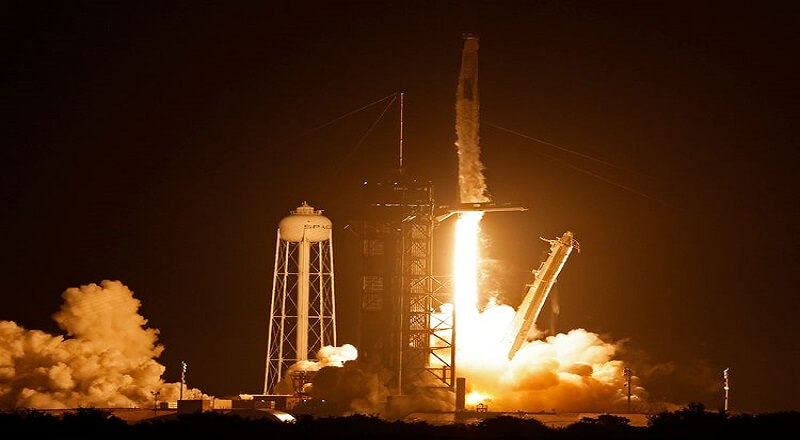WASHINGTON: A SpaceX capsule carrying four astronauts docked with the International Space Station on Thursday, kicking off a six-month stay on the orbiting outpost.
This mission known as Crew-3 is part of NASA’s multibillion-dollar partnership with Elon Musk’s space company, signed after the Space Shuttle program ended in 2011 and aimed at restoring US capacity to carry out human spaceflight, rather than depend on Russia for links to the ISS.
The ISS had been operating with just one NASA astronaut in the US segment to welcome the incoming crew, after the astronauts of the earlier Crew-2 mission splashed down in the Gulf of Mexico on Sunday.
Crew-3’s Raja Chari, Kayla Barron and Tom Marshburn of the United States and Matthias Maurer of Germany traveled to space aboard a Crew Dragon capsule fixed to a Falcon 9 rocket from the Kennedy Space Center in Florida. They blasted off late Wednesday.
Read More: ISS astronauts had to wear diapers after leakage in space shuttle’s waste management system
The spaceship, called Endurance, docked with the ISS around 7:10 pm Thursday (0010 GMT Friday).
The flight was initially postponed from October 31, first for weather, then a “minor medical issue” affecting one of the crew. NASA did not say who it was but said it was not Covid-related.
Chari, a US Air Force colonel, is commanding the mission and making his first trip to space, along with Barron and Maurer.
Marshburn, a medical doctor, flew aboard a Space Shuttle in 2009 and a Russian Soyuz spacecraft in a mission from 2012-13.
Barron, who along with Chari was selected for the NASA astronaut corps in 2017, the most recent recruitment, previously served as a submarine warfare officer for the Navy, while Maurer, a materials science engineer, is the 12th German to go into space.
The quartet will spend six months on the orbital outpost and conduct research to help inform future deep space exploration and benefit life on Earth.
Scientific highlights of the mission include an experiment to grow plants in space without soil or other growth media, and another to build optical fibers in microgravity, which prior research has suggested will be superior in quality to those made on Earth.
The Crew-3 astronauts will also conduct spacewalks to complete an upgrade of the station’s solar panels and will be present for two tourism missions, including Japanese visitors aboard a Russian Soyuz spacecraft at the end of the year and the Space-X Axiom crew, set for launch in February 2022.


